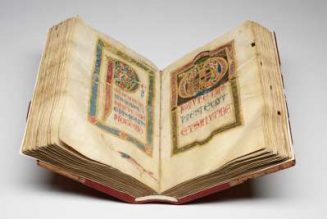By Phil Lawler ( bio – articles – email ) | Jan 18, 2023
Sometime in my impressionable adolescent years, I saw a film clip from the Vatican, showing the procession of bishops entering a session (the opening session, maybe?) of Vatican II. My memory is of a solemn, stately march; I marveled at the precision with which it must have been organized.
Now that I am older—closing in on the age when bishops are obliged to retire—I realize that my youthful memory has played tricks on me. I have watched bishops enter churches in procession on many important occasions, including the sad events at the Vatican in the past few weeks. These processions are certainly solemn. They may be stately. But precise? No.
Soldiers march in precise formation. Marching bands stay in stride. Bishops do not. The prelates are not drilled to stop and start and turn on cue; they do not rehearse before the event. If they stay more or less in order, row by row, that is good enough. No one expects more. A procession is not a parade.
Yet the young Phil watched that film clip, saw the bishops walking in ragged rows, with different gaits, and somehow came away with the impression that it had all been carefully coordinated. Why?
This week I have been reading a fascinating book about a real-life Russian spy, Oleg Gordievsky, who became an agent of British intelligence while serving inside the KGB (The Spy and the Traitor: The Greatest Espionage Story of the Cold War). The true story is every bit as exciting—because it is true—as the fantasy adventures of James Bond and Jack Ryan and Jason Bourne. But there is also a human element, because real spies are not superheroes. The intelligence agents miss meetings, overlook obvious signals, fail to capitalize on opportunities, misinterpret their rivals’ intentions, become distracted by irrelevancies, waste time chasing each other down rabbit holes. In other words they make mistakes—sometimes very serious, damaging mistakes—because they are human.
Yet while they are conscious of their own failures and weaknesses, the intelligence agencies still operate on the assumption that their rivals are ruthlessly efficient. Why?
There is a common thread here, I think. The young Phil was in awe of the authority of Catholic bishops, and so I saw in their procession a level of organization that surely did not exist. The leaders of the British MI6 feared the destructive power of the Soviet empire, and so they gave the KGB credit for an efficiency that it lacked. (And the KGB returned the compliment.) When we believe that another institution has great power, for good or for ill, we tend to assume that the institution will use that power effectively. And that tendency is even stronger, I suggest, when we see the institution as a threat to ourselves.
Why am I writing about Catholic bishops and Soviet spies, about the Vatican Council and the Cold War? To make a point about rivalries among Catholics. Those of us who are engaged in controversies within the Church are often tempted to think that “the other side” is minutely organized and ruthlessly efficient, whereas “we” are disconnected, fumbling, and congenitally underfunded. We see our own weaknesses, the product of human failings. We do not realize that our rivals have the same weaknesses.
Remember the unintentionally hilarious 2017 essay in Civilta Cattolica, co-authored by the Pope’s close aide, Father Antonio Spadaro, arguing that the Church must combat an American conservatism that is “actually the opposite of Christianity?” That piece betrayed a staggering ignorance about American conservatives: who they are, how they think, and especially how they influence public opinion. We can (and probably should) laugh at that analysis. But as we do, we should check our own thoughts. Do we harbor the same sort of unrealistic fears about our intellectual rivals? Do we perceive a massive global threat when a more realistic view would identify only a handful of disorganized bloggers?
There are massive global threats; I do not mean to dismiss them. And it is not “conspiracy theory” to report what powerful people are saying openly. But we dilute the force of our warnings when we see dangers where they do not exist, and impute great strength to forces that are actually quite weak. One of my pet peeves, as a journalist, is the sort of news coverage that always hunts down extremes, seeking shock value, capturing clicks while encouraging paranoia. The troubles in the Church are serious enough, the divisions are deep enough, so that exaggeration is unnecessary.
We certainly do have intellectual rivals within the Church, and our differences are serious. But we do ourselves no favor when we imagine that our rivals march in lockstep, plotting our demise with Machiavellian cunning. Let’s be honest. The terms “Catholic” and “efficiency” do not pop up frequently in the same sentences. Our rivals are probably no better organized than we are.
Sound Off! CatholicCulture.org supporters weigh in.
All comments are moderated. To lighten our editing burden, only current donors are allowed to Sound Off. If you are a current donor, log in to see the comment form; otherwise please support our work, and Sound Off!











